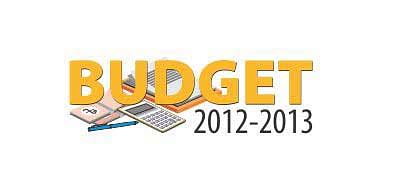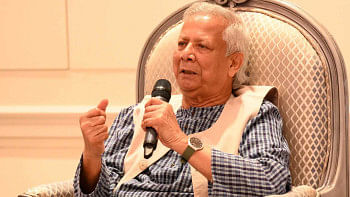Inflation: the Achilles' heel

The biggest challenge for the government in the next fiscal year is to contain the soaring inflation rates as the national election is approaching.
After inflation grew to double digits for 13 months in a row from March 2011 to March 2012, the government has set a target to bring it down to 7.5 percent in the next fiscal year.
However, economists said, in a conservative estimate, inflation may fall, but not much.
In South Asia, inflation grew much in India, Pakistan and Sri Lanka due to a hike in commodity and oil prices on the international market, but the highest rise was in Bangladesh.
The economists as well as officials of the finance ministry and Bangladesh Bank said inflation increased much in Bangladesh due to a huge subsidy, failure in utilising foreign aid and the government's huge borrowing from banks.
Also, the depreciation of the taka and a hike in fuel and energy prices on several occasions fuelled inflation.
Former adviser to a caretaker government Mirza Azizul Islam said the government's heavy borrowing from the banking system and a deficiency in utilising external assistances caused the rise in inflation.
He said it is unlikely that inflation will come down much in the next fiscal year.
However, if the prices of fuel and food grains mark a fall on the global market, it may have a positive impact on inflation, he added.
In the current fiscal year's budget, the allocation for subsidy was about Tk 20,000 crore, but the finance ministry now estimates that Tk 40,000 crore may be required for subsidy.
As a result, the amount of the government's borrowing from banks will be raised to more than Tk 29,000 crore in the revised budget from around Tk 19,000 crore in the original one.
In the next fiscal year, the target of such bank borrowing may be set at around Tk 21,000 crore.
But a finance ministry official said, if the ministries fail to properly utilise foreign aid and the pressure on subsidy cannot be reined in, the amount of borrowing will shoot up further.
Private think tank Centre for Policy Dialogue (CPD) in a recent report on the country's macroeconomic performance in fiscal 2012 said lax macroeconomic management has been greatly responsible for many of the recent economic woes.
On the outlook for the next fiscal year, the CPD report said, “From all indications, it seems that inflationary pressure will sustain in the upcoming year.”
Releasing the report on Monday, CPD Distinguished Fellow Debapriya Bhattacharya said, through the central bank's tight monetary policy the private sector credit could be cut down, but the government's borrowing from banks would not be contained.
However, in line with the prescription of the International Monetary Fund, the prices of fuel will have to be raised in future, and the move will fuel inflation further.
On the government's target of containing inflation within 7.5 percent, Vice Chairman of Policy Research Institute Sadiq Ahmed said, “It depends on so many factors. But if the Bangladesh Bank is able to limit the growth of money supply to 16-17 percent for the next 12 months, inflation may come down to around 7-8 percent.”
Ahmed said, in the recent times China, India and Vietnam also faced high inflationary pressures.
He said all these countries recognised that, besides high food and energy prices, inflation was caused by high domestic demand and they took appropriate actions to slow down the growth of domestic liquidity and credit.
He said Bangladesh was late in recognising this, but fortunately things are looking good now.
The central bank has taken steps to put brakes on the growth of domestic liquidity.
Ahmed said, this policy needs to be implemented properly with supportive fiscal policy that limits public sector borrowing from the central bank in order to avoid a crowding out of the private sector.
World Bank's senior economist Zahid Hussain said the outlook for the next year hinges on trends in global commodity prices and the continuation of fiscal and monetary restraints domestically.
Citing the forecast in the IMF's World Economic Outlook, Hussain said the prices of both fuel and non-food commodities may fall on the international market.
“This bodes well for inflation in Bangladesh provided non-food inflation is reduced from the current double digit level to low single digit through prudent monetary and fiscal policies,” he said.
Hassan Zaman, senior economic adviser to the BB governor, said, “We are seeing some signs of inflation coming down; we will maintain this monetary stance until such time that we see a consistent pattern of single digit inflation over several months.”

 For all latest news, follow The Daily Star's Google News channel.
For all latest news, follow The Daily Star's Google News channel. 



Comments